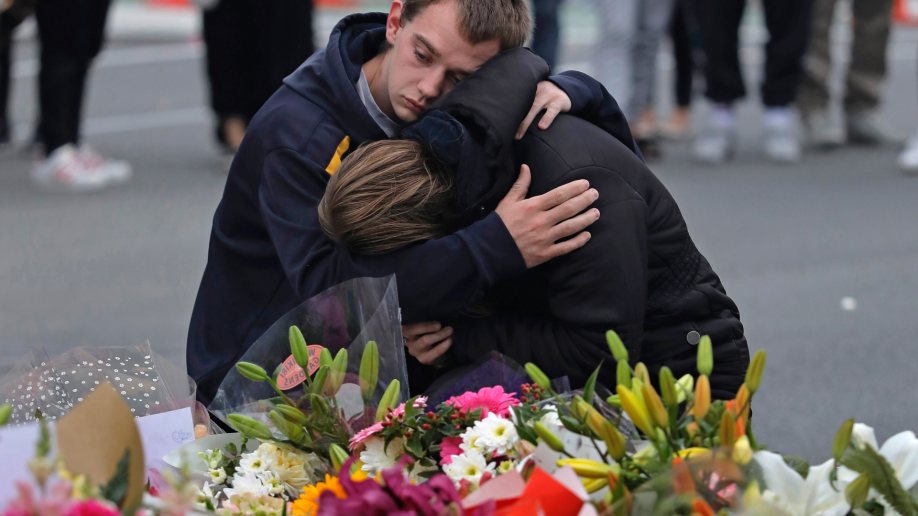The recent atrocity at a New Zealand mosque that left 49 people dead on Thursday rightfully reinvigorated concerns about white supremacy, anti-Muslim bigotry and domestic terror.
It also revealed how utterly incapable we are at addressing mass tragedy.
It is important to make conscious changes to how we address these issues. In our divided culture, it is difficult to find common ground on anything, but during incidents of evil there are at least three basic guidelines we should all agree upon.
1) DO NOT GIVE THE PERPETRATOR A PLATFORM
This is a hard rule to follow and an even harder one to enforce. Humans who appear inhuman because of a lack of basic morality fascinate us, despite terrifying and offending us. Lists of the most portrayed historical and fictional characters in film always seem to include Adolf Hitler, Count Dracula and the Devil in the top ten. Evil seems to fascinate us far more than good.
Yet attention is exactly what perpetrators want. Even if they do not want their personal fifteen minutes of fame, they often want their terrible political or religious ideas to be given a spotlight. Professors Jennifer Johnston and Andrew Joy of Western New Mexico University describe the “media contagion” that makes mass shootings more common and the desire for fame that serves as “a cross-cutting trait among many profiles of mass shooters.” Mass shooters want attention. Do not give it to them.
A few media outlets have adopted a policy of not releasing the names, pictures or manifestos of mass shooters. Although they are willing to provide the backgrounds and ideology for such shooters, they will not publish anything that might serve as a sick glorification of evil people. Other outlets would be wise to follow suit.
2) DO NOT RUSH TO MAKE CONNECTIONS
I understand the tendency to want to “fix” the problem and to assert that one’s philosophy would prevent further tragedy. After the horrific Pittsburgh synagogue shooting, I wrote a Chimes article asking Christians to recommit to Jewish causes. It was an important message during an important time and I stand by what I wrote.
There is a difference, however, between a thoughtful proposal and a hot take. In the first 24 hours after a tragedy, no one knows whether a perpetrator is mentally ill, a legal gun owner, an Islamic extremist or a white supremacist. For some reason, however, we believe that we must comment right away. If a person we despise uses an object we despise to commit an act all moral people despise, this is somehow a justification of our disdain; almost a victory. We saw this is in the bizarre attempt by Australian Senator Frasier Anning to make a connection between Muslim immigration policies and the death of Muslim people. We are so busy praying that the perpetrator is someone we already have marked as an enemy that we may forget to pray for the families of the victims.
We can have policy discussions. I attempted to start one about Jewish issues three days after the worst anti-semitic attack in American history. What we must not do is immediately superimpose our politics onto tragedy and act as though each atrocity is merely a result of some larger political issue. Tragedy is not always part of a larger conspiracy. Sometimes a tragedy is just a tragedy.
3) OFFER YOUR THOUGHTS AND PRAYERS
In the aftermath of the New Zealand shooting, New York congresswoman Alexandria Ocasio-Cortez was blasted for referring to “thoughts and prayers” as an “NRA phrase.” Setting aside the fact that the NRA does not even exist in New Zealand, the congresswoman should realize that “thoughts and prayers” is not a political trope—it is a profoundly human response to tragedy.
Washington Examiner reporter Siraj Hashmi, who is a follower of Islam, had the best response to the congresswoman’s hot take, tweeting that her words were “incredibly insensitive to my Muslim brothers and sisters who were slain in cold blood while they were literally praying because they want to be closer to their creator and they want to become better people.” There is a time for policy debate, but when the bodies are still warm, victims and their families need empathy and solidarity more than anything else.
As a culture we should be able to grieve corporately and to stand in unity with innocent victims. During tragedy, partisan bickering and political calculations should have no part in our discourse, or in our hearts. In times of extreme tragedy we should look to shared humanity rather than fixating on evil and political gridlock.







